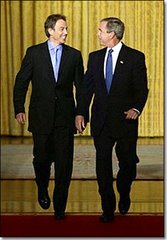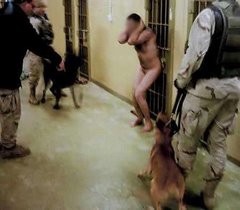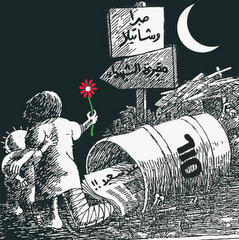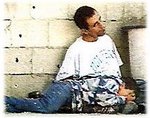
Olmert gave the go-ahead for dig work to continue despite an appeal from his defence minister [EPA]
posted by aljazeera.net
Israel's prime minister is reported to have rejected a call from his defence minister to halt excavation work near Jerusalem's most important holy site, an Israeli newspaper reports.
Ehud Olmert, the Israeli leader, said he would allow the dig near the al-Aqsa mosque compound in Jerusalem to continue after the appeal from Amir Peretz.
bodyVariable350="Htmlphcontrol1_lblError";
"A thorough examination of the matter would reveal that nothing about the work under way will harm anyone, and there is no truth in the contentions against the work," the Ha'aretz newspaper quoted Olmert's office as saying.
Arab states have said the work could damage al-Aqsa's foundations.
bodyVariable300="Htmlphcontrol2_lblError";
For years the Islamic Movement has waged a campaign to "save" al-Aqsa, the main mosque in a compound in Israeli-occupied and annexed east Jerusalem.
The compound is known to Muslims as Haram al-Sharif and to Jews as the Temple Mount.
The mosque is the third holiest site in Islam.
The Israeli defence ministry did not immediately comment on Thursday's report and Olmert's office was not available for a response.
On alert
Israeli police remained on heightened alert on Thursday, with about 2,000 officers deployed throughout the Old City and nearby areas in east Jerusalem.
About 100 Palestinians briefly blocked an entrance to Jerusalem's Old City in response to the excavations.
Micky Rosenfeld, an Israeli police spokesman, said the protesters dispersed peacefully after police ordered them to do so.
Tensions have flared between Israel and the Palestinians over the Israeli excavation, which started on Tuesday.
Haaretz said Peretz wrote to Olmert on Wednesday calling for the immediate stop to the work, citing security concerns.
Palestinian warning
The Fatah faction of Mahmoud Abbas, the Palestinian president, said any damage caused to the mosque by the dig work would "lead to a termination" of a November ceasefire deal operating in Gaza, and spark a "volcano of anger".
"I turn to Olmert to think anew," Sheikh Abdallah Nimr Darwish, head of Israel's Islamic Movement, told Israel Radio.
"Whoever wants to speak about peace does not excavate anywhere in the area around the holy al-Aqsa mosque," Darwish said, referring to Olmert's planned February 19 peace talks with Abbas and Condoleezza Rice, the US secretary of state.
Israel say the excavations are part of a search for ancient artefacts beneath the compound but would not harm the sacred site in Jerusalem's walled Old City.
Webcast proposal
The Israel Antiquities Authority is carrying out initial excavations before repairing an access ramp.
Osnat Gouez, an authority spokesman, said: "We are looking at the possibility of installing cameras at the start of next week that would broadcast real-time footage on the internet of the excavations being carried out at the site."
A parliamentary spokesman said Israel Hasson, an Israeli MP, made the suggestion on Wednesday to Olmert who ordered that the idea be put into practice.
Hasson said: "This initiative is to prove to the Arab world that the works under way on site pose no harm to the mosques."
posted by aljazeera.net
Israel's prime minister is reported to have rejected a call from his defence minister to halt excavation work near Jerusalem's most important holy site, an Israeli newspaper reports.
Ehud Olmert, the Israeli leader, said he would allow the dig near the al-Aqsa mosque compound in Jerusalem to continue after the appeal from Amir Peretz.
bodyVariable350="Htmlphcontrol1_lblError";
"A thorough examination of the matter would reveal that nothing about the work under way will harm anyone, and there is no truth in the contentions against the work," the Ha'aretz newspaper quoted Olmert's office as saying.
Arab states have said the work could damage al-Aqsa's foundations.
bodyVariable300="Htmlphcontrol2_lblError";
For years the Islamic Movement has waged a campaign to "save" al-Aqsa, the main mosque in a compound in Israeli-occupied and annexed east Jerusalem.
The compound is known to Muslims as Haram al-Sharif and to Jews as the Temple Mount.
The mosque is the third holiest site in Islam.
The Israeli defence ministry did not immediately comment on Thursday's report and Olmert's office was not available for a response.
On alert
Israeli police remained on heightened alert on Thursday, with about 2,000 officers deployed throughout the Old City and nearby areas in east Jerusalem.
About 100 Palestinians briefly blocked an entrance to Jerusalem's Old City in response to the excavations.
Micky Rosenfeld, an Israeli police spokesman, said the protesters dispersed peacefully after police ordered them to do so.
Tensions have flared between Israel and the Palestinians over the Israeli excavation, which started on Tuesday.
Haaretz said Peretz wrote to Olmert on Wednesday calling for the immediate stop to the work, citing security concerns.
Palestinian warning
The Fatah faction of Mahmoud Abbas, the Palestinian president, said any damage caused to the mosque by the dig work would "lead to a termination" of a November ceasefire deal operating in Gaza, and spark a "volcano of anger".
"I turn to Olmert to think anew," Sheikh Abdallah Nimr Darwish, head of Israel's Islamic Movement, told Israel Radio.
"Whoever wants to speak about peace does not excavate anywhere in the area around the holy al-Aqsa mosque," Darwish said, referring to Olmert's planned February 19 peace talks with Abbas and Condoleezza Rice, the US secretary of state.
Israel say the excavations are part of a search for ancient artefacts beneath the compound but would not harm the sacred site in Jerusalem's walled Old City.
Webcast proposal
The Israel Antiquities Authority is carrying out initial excavations before repairing an access ramp.
Osnat Gouez, an authority spokesman, said: "We are looking at the possibility of installing cameras at the start of next week that would broadcast real-time footage on the internet of the excavations being carried out at the site."
A parliamentary spokesman said Israel Hasson, an Israeli MP, made the suggestion on Wednesday to Olmert who ordered that the idea be put into practice.
Hasson said: "This initiative is to prove to the Arab world that the works under way on site pose no harm to the mosques."













